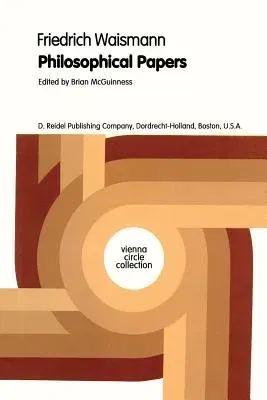Friedrich Waismann
(Author)Philosophical Papers (Softcover Reprint of the Original 1st 1977)Paperback - Softcover Reprint of the Original 1st 1977, 31 January 1977

Qty
1
Turbo
Ships in 2 - 3 days
In Stock
Free Delivery
Cash on Delivery
15 Days
Free Returns
Secure Checkout
Part of Series
Vienna Circle Collection
Print Length
191 pages
Language
English
Publisher
Springer
Date Published
31 Jan 1977
ISBN-10
9027707138
ISBN-13
9789027707130
Description
Product Details
Author:
Book Edition:
Softcover Reprint of the Original 1st 1977
Book Format:
Paperback
Country of Origin:
US
Date Published:
31 January 1977
Dimensions:
23.39 x
15.6 x
1.17 cm
ISBN-10:
9027707138
ISBN-13:
9789027707130
Language:
English
Location:
Dordrecht
Pages:
191
Publisher:
Series:
Weight:
308.44 gm

